Iggy is a proudly gay rabbi and spiritual counselor today and a fashion designer in another life. He grew up Orthodox and is tattooed. He has multiple homelands, and he thanks God for the New York City skyline. He’s comfortable in darkness and loves telling jokes. He studies Talmud daily and loves The Real Housewives. He revels in being a supreme hyphenate.
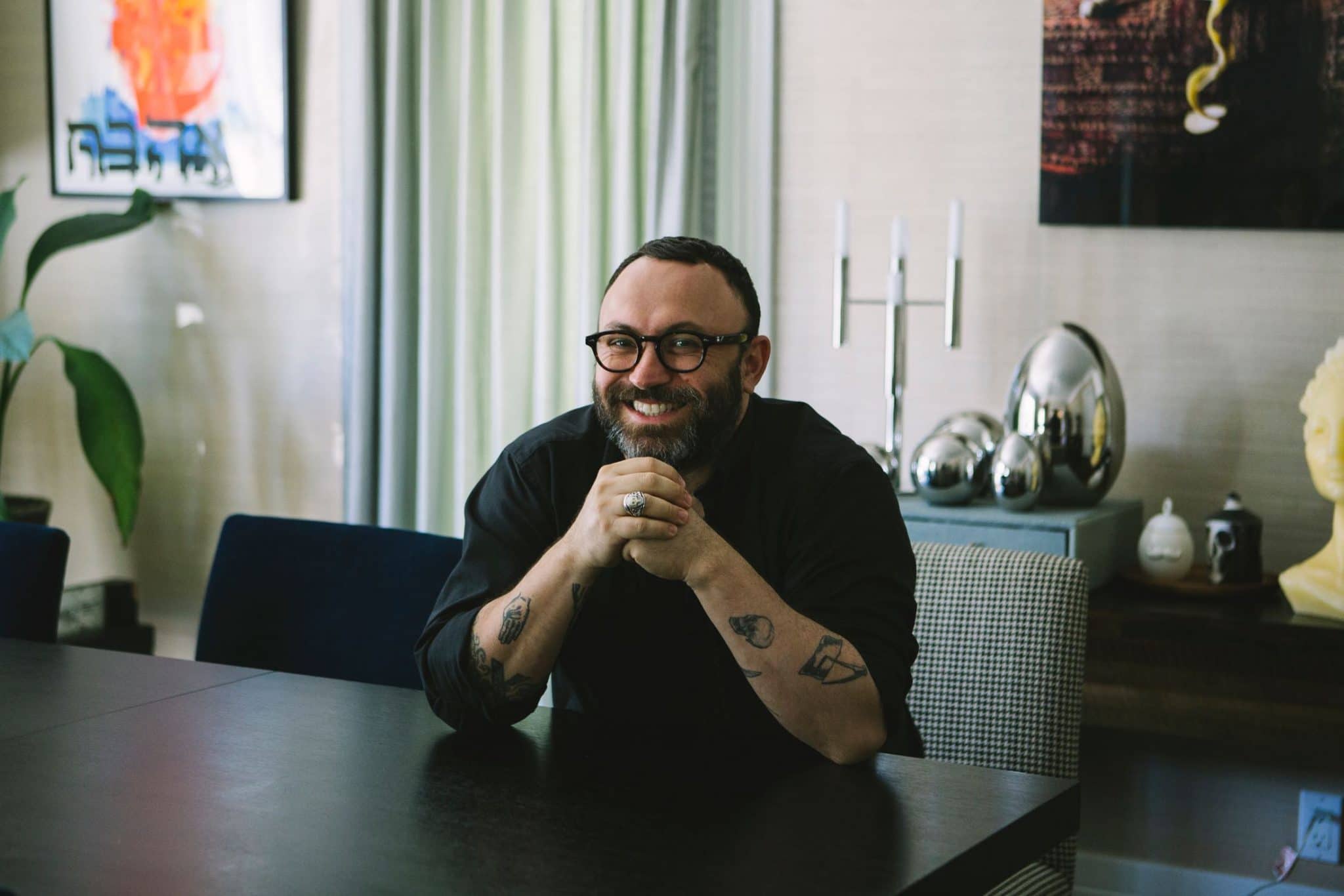
What is the meaning of your name?
My name means “and he shall redeem them by the hand of the Lord.” No pressure whatsoever.
My parents liked it because there’s a very popular Belgian name Gael, and there’s a Jewish name Igal, so they put them together.
I was in an Uber, and I had an Israeli driver, and he asks, “You Israeli?” I said, “No, but I spent time there.” He says, “So, what’s your name?” I said, “Igael.” He said, “Yigal.” I said, “No, it’s Igael.” He said “No, no, it’s pronounced Yigal!” I said, “It’s my name. I’ve had it for close to 40 years. I’m pretty sure,” but he kept insisting.
When I was a teenager, people started calling me Iggy, and that stuck.
When you were a kid, what did you want to be when you grew up?
I remember loving anything sartorial. I loved getting dressed, I loved the ritual of my grandfather and my father putting on a tie and a jacket. I grew up with a uniform. We wore white shirts and dark pants. That led to a whole fascination with texture and color.
I always thought that I would be a fashion designer. In many ways I still do.
Armani was an architect until he was 41, then he started Armani, and now he’s Armani.
What advice would you give your teenage self?
I know it’s a cliché, but I do want to say to him, “It gets better.” I was very angry, and I felt very isolated. I didn’t know what was going on with me. On the other hand, I always belonged. I loved my whole yeshiva high school experience. It was fun. I had friends. I knew Talmud, so it was easy for me to fit in with the norms of the time.
What I really want to say is, “Just shut up. If you just listen, you’ll hear everything you need to hear.”
I spoke a lot to cover what I was feeling inside, which was a lot of strangeness, otherness.
When people asked me, “Why do you wear black?,” I would say, “I’m mourning the death of my sanity.” I was that kid. Intellectual goth yeshiva boy.
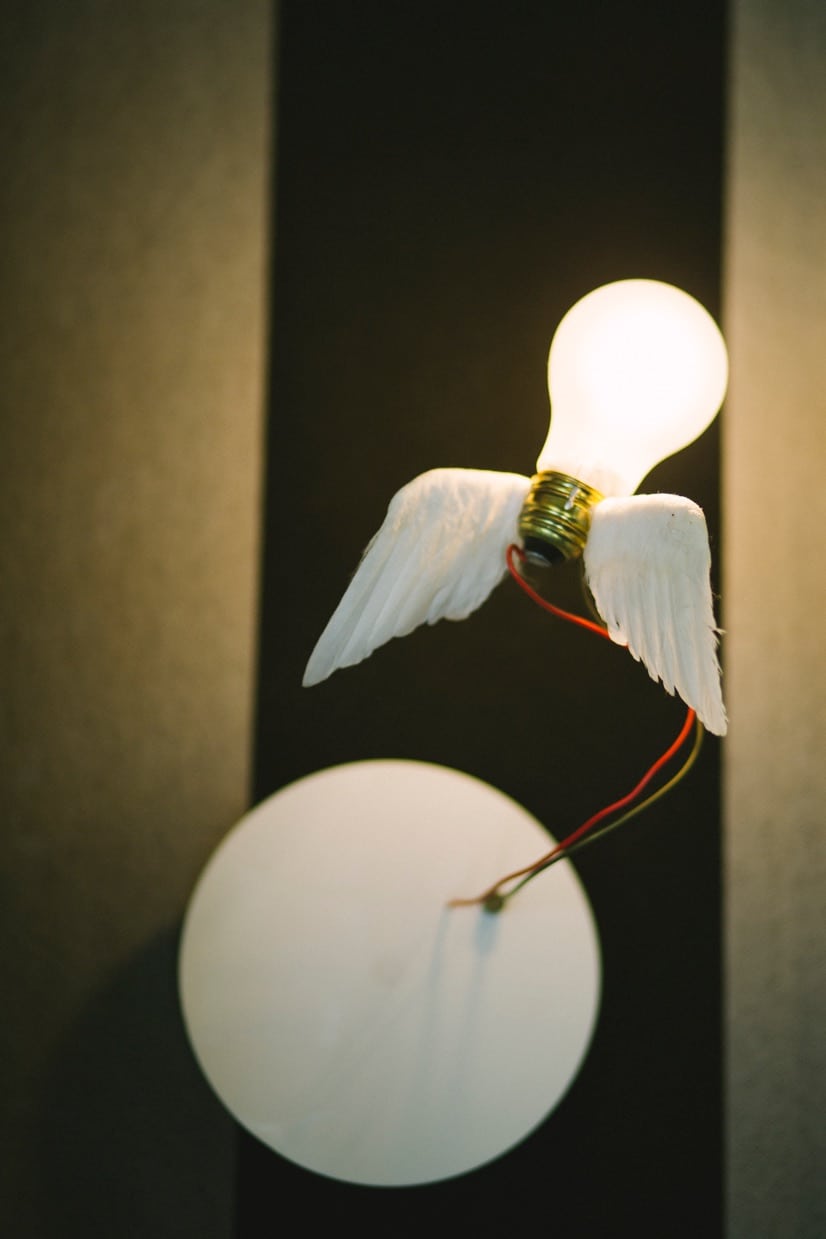
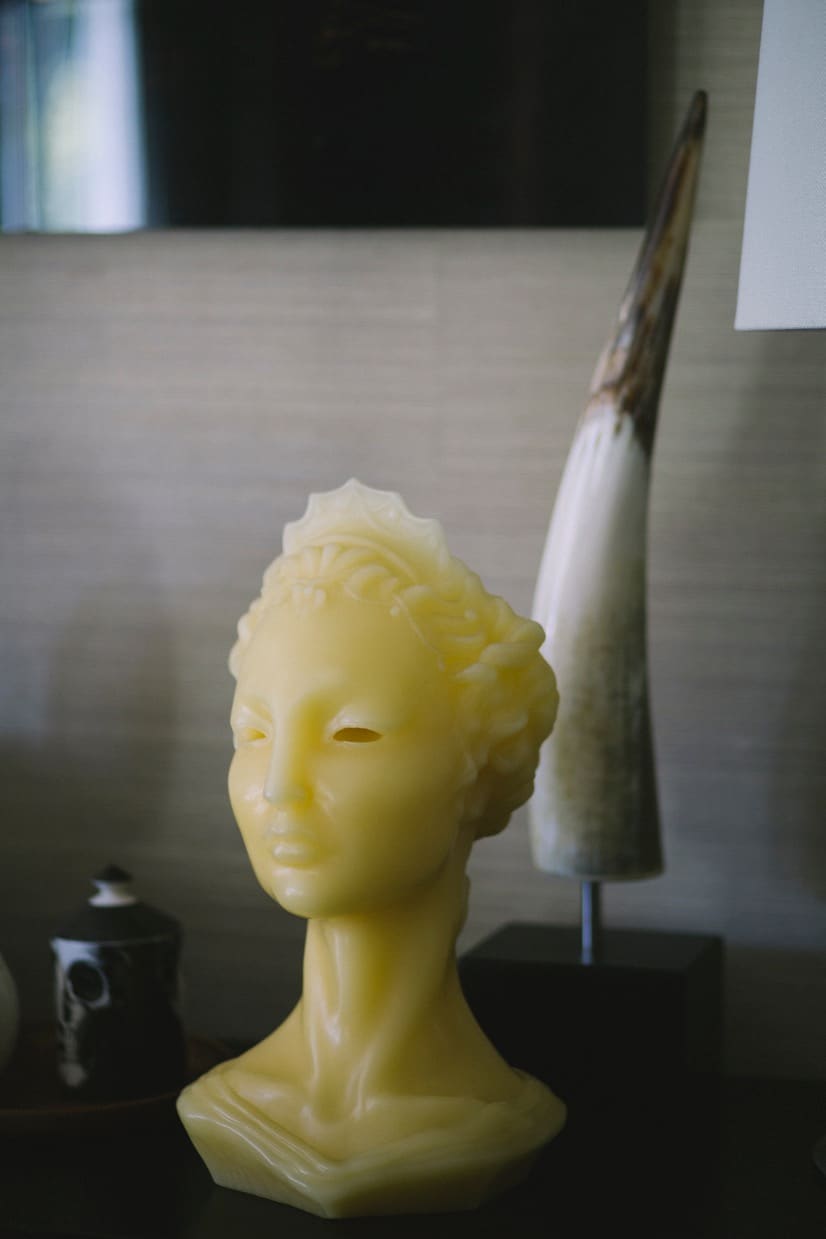
Tell us about your background.
I come from a long stock of very resilient people.
My grandfather was a Holocaust survivor. He came from a very large family deported from Belgium during the war to Auschwitz, survived Auschwitz, and lost his entire family. My grandfather had two prayers in his life. He wanted to rebuild a family of his own and to never suffer. That is, to not languish. He got both. He built a family and he died with very little pain.
I was raised through multiple continents as a child.
I was given a lot of opportunities to explore the world.
My mother was somewhat progressive, so it was important for her, even though we were relatively isolated in terms of our own religiosity, to know about art. My background was varied and rich, but there were things that you were expected to do and there were things that you were not allowed to do because “We don’t do that.”
It’s a stock of surviving, strong, willful, intelligent people. Always straddling multiple worlds. I carry that to this day.
How did Judaism play a role in your upbringing?
I grew up Orthodox. If you wake up, you wash your hands, you say a prayer. You said HaMotzi before you eat, you said Birkat Hamazon after you eat. You go to your yeshiva, you study. The routine was pretty much set. There was no thought about what it means. It was just the things we do.
The Hindus have a way of looking at life and religiosity that I wish we could apply in Judaism.
I wish every kid could grow up Orthodox, go to a Conservative high school, go to Reform university, and then be Reconstructionist later on. Part of my ability to rebel, to create new narratives of what religiosity is, and what spirituality is, is because I had the education and experience as a kid. As a gay man, I had to deal with contradictions from a young age. I learned not just how to live with it, but to thrive in that tension. A significant portion of my work as a rabbi these days is helping people – all over the Kinsey scale – thrive amongst seemingly opposing forces. When you understand and practice, you see that tension is the key to balance, and who doesn’t want balance?
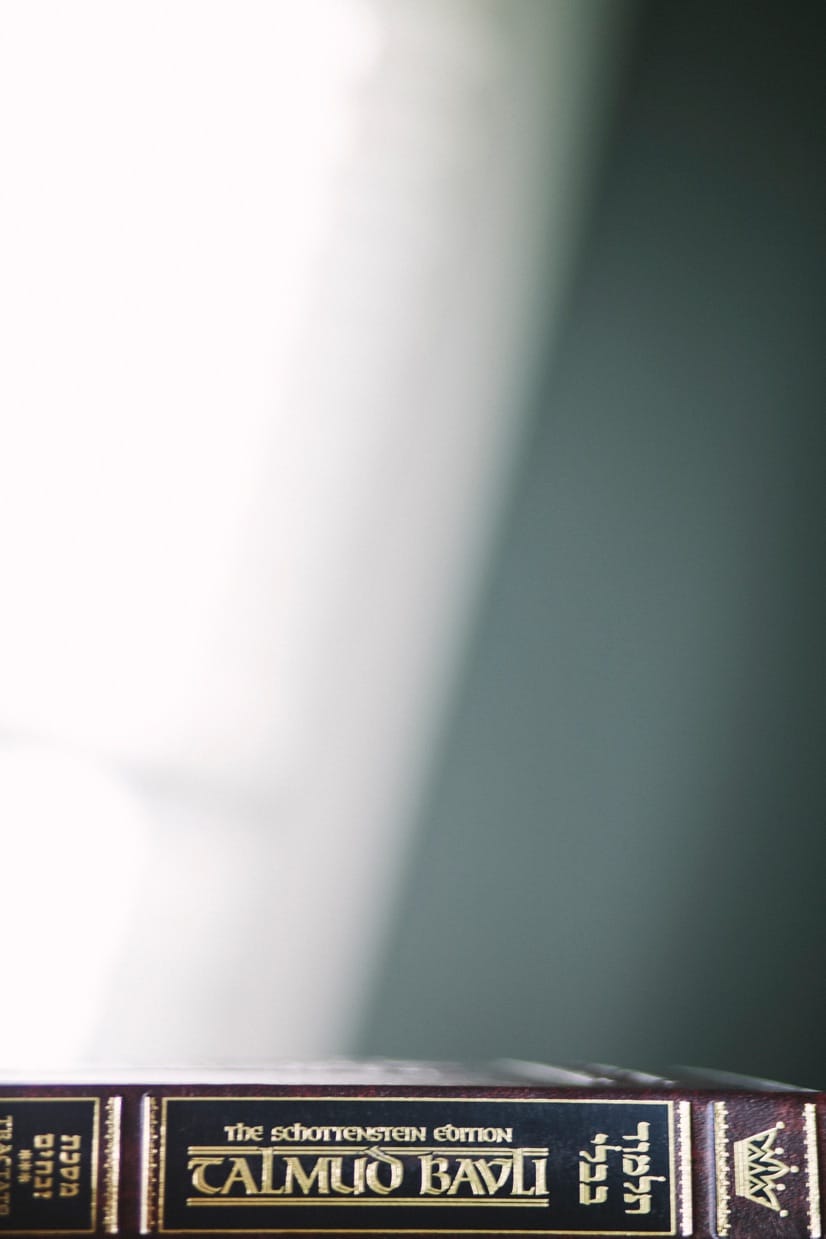
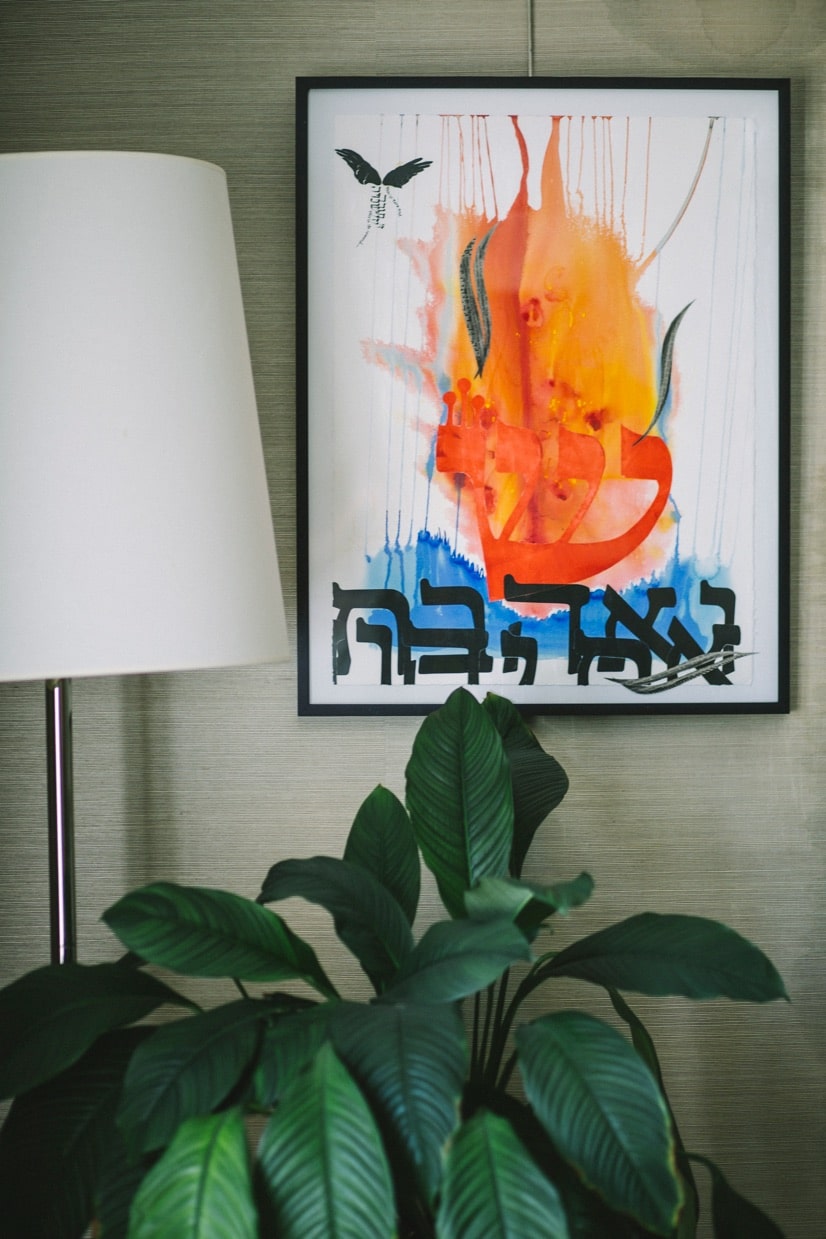
How does Judaism play a role in your life now?
Since I was five years old, every day I study a page of Talmud. I wake up every morning at five-thirty, I go downstairs before everybody wakes up, and I study my page of Talmud. Then, I go about my day. It’s called the Daf Yomi. It’s my meditation, it’s a big part of my spiritual work.
Judaism is imbued in a lot of different elements of my life, from my professional work to my personal life, to my conversations, to the values I hold dear, to the way I use it. It’s like the lens at the optician’s. Can you see more clearly? Not clearly? I use it to filter out different things, put things into focus things, blur things. It’s a tool.
The art I do is primarily inspired by Jewish text and Jewish life. We have Shabbat every week. There’s a mezuzah on my door. I’m a rabbi. I work as a spiritual counselor. I teach Torah study once a week. I write. I say the Shema when I go to bed, and I say Modeh Ani the first thing I do in the morning. I take a shower and I’m circumcised. It’s always there.
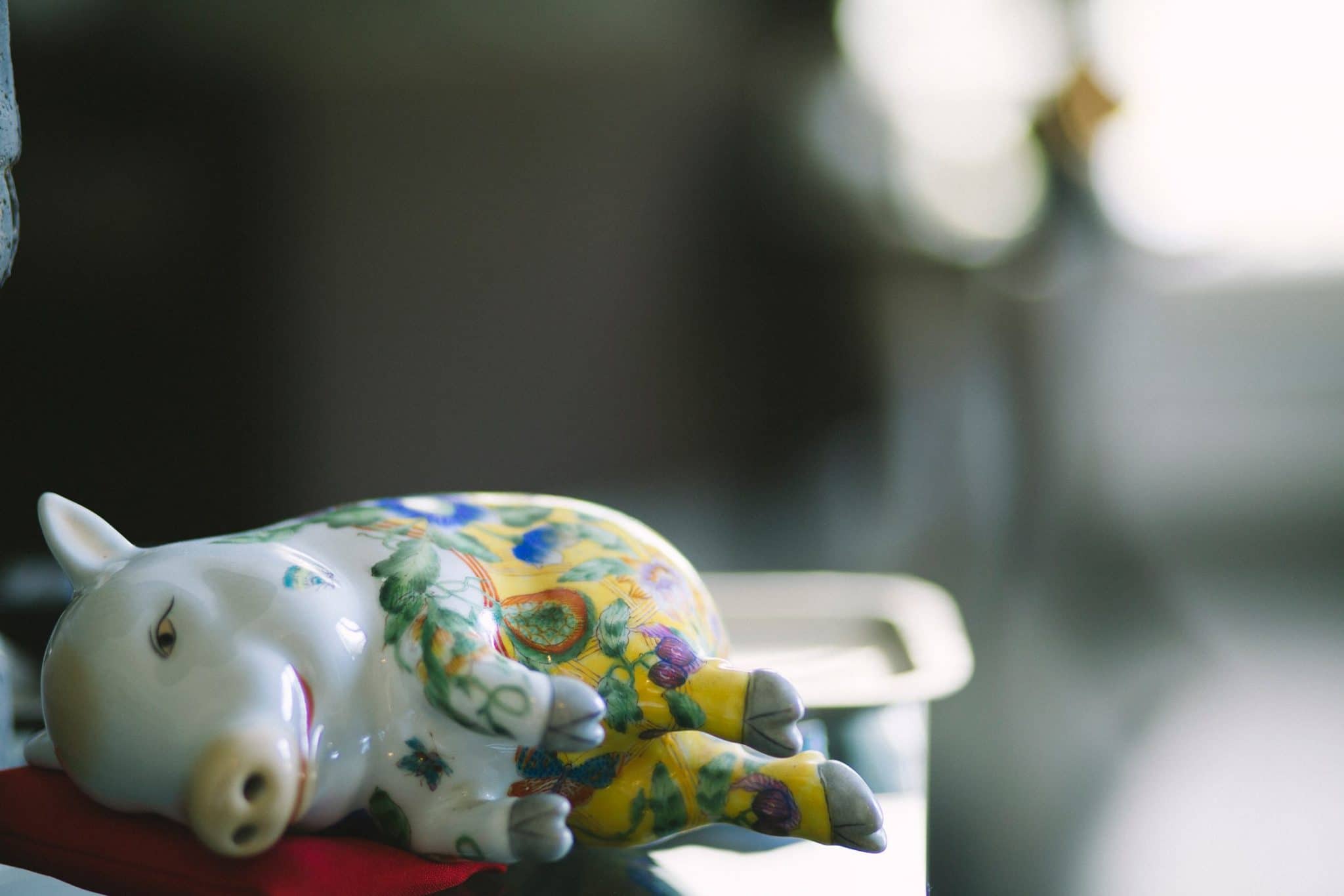
Describe a turning point in your relationship with Judaism.
It’s always been there, and, like every relationship, it’s had its ups and downs. Sometimes it’s like, I love you, I love you, I love you, and sometimes it’s like, I don’t want anything to do with you. Please don’t text me. I’ll see you later.
My belief in God is there because I keep inviting Him in.
I need magic in my life. I need the possibility of things that I do not understand. For me, a God of our own understanding, the experience, the wonder, the amazement of God, is fundamental to my own experience.
Faith, in my opinion, is an action, it is not a feeling. You have to invite it into your life and create opportunities for wonder. You can go into the desert and all that, but if you can do it on the way to work, if you can do it in the line at Trader Joe’s, then you have a chance at having a real spiritual life. Life is never about the big highs or the big, big lows.
Life is about the day to day.
We have opportunities every day to wander, to go astray, to do something else, to feel that we’re too constricted, that we have no rights, or to lean into the other side, to depend too much, to develop a co-dependency. You have to choose every day to stay with that relationship and redefine it.
You’ve lived in Europe, Israel, San Francisco, Los Angeles, and New York City. How have the places you’ve lived informed your identity or Jewish practice?
People want to connect, people want to feel appreciated, people want to feel that they are seen and heard. People want to be part of a larger scope or system or group. People want shelter. People want to be loved. People want to be inspired. That’s the same absolutely everywhere.
Israel is an intense place with peaks of beauty that are really incomparable to anything else I’ve seen in my life. Both physical beauty and human beauty. You connect there from the moment you arrive. You land and you feel you’re home.You’re walking the streets, and the people you read about in the Bible have been there. That element by itself is mind boggling.
Spiritually speaking, every prayer is directed to Israel. There’s so much spiritual energy flowing there. It must affect us somehow. I know it sounds very woo-woo.
I’ve never felt anything quite as deep as I’ve ever felt things in Israel.
Belgium is every shade of gray and the ancestral home of my family. The beauty, the richness of history, the food. It shapes my view of the world in terms of its aesthetics. You look at my house, it’s Belgian.
There’s America. The abundance of Jewish life. The richness of interpretation. The freedom to be oneself is magic.
Then, there’s the in between. Leah Goldberg says it best: “Perhaps only migrating birds – when they are suspended between heaven and earth – know the pain of having two homelands.” I feel like that all the time.
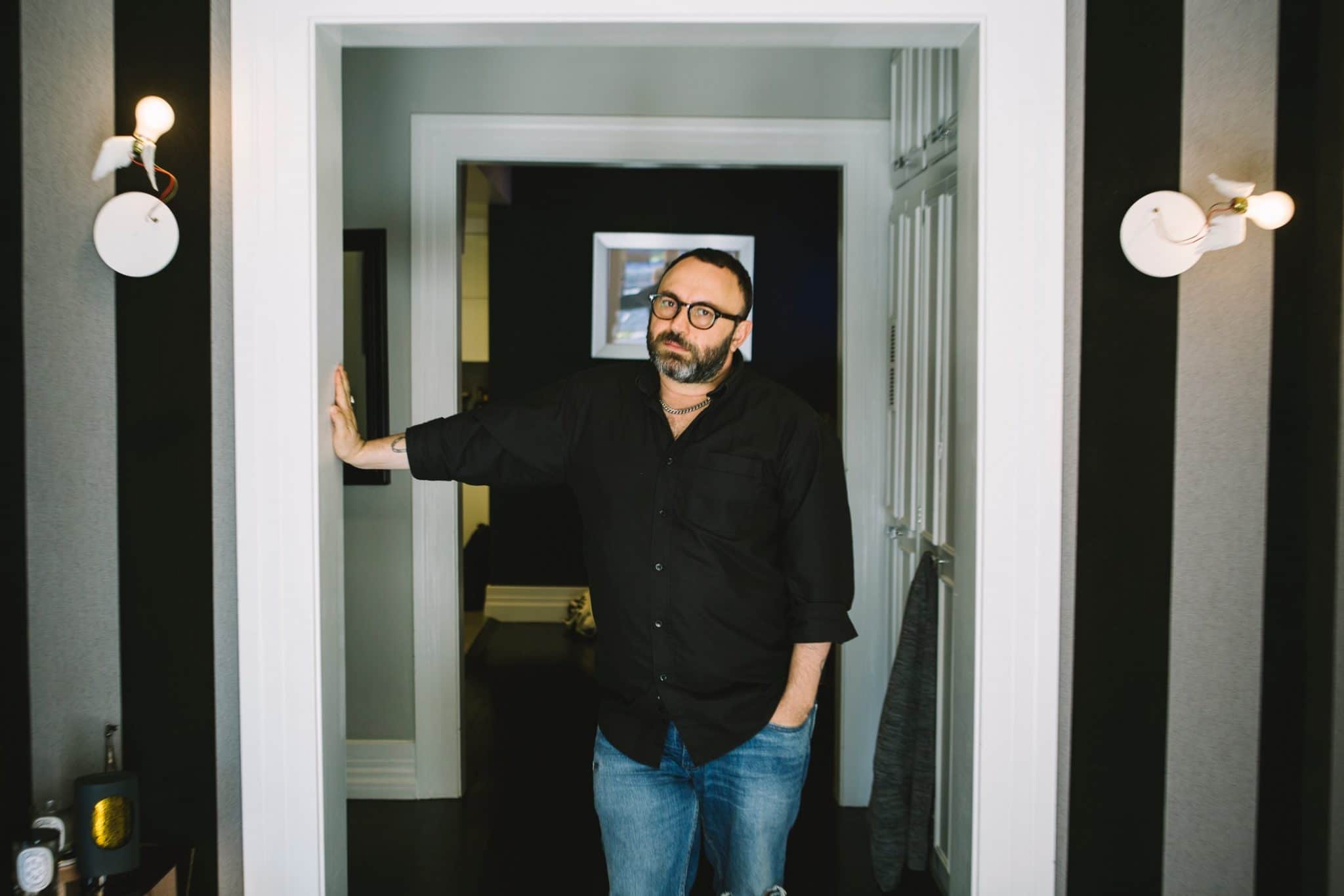
What is a typical day like for you?
Every Monday, I teach a Talmud class in Hollywood. It’s for adults, and it’s filled with intelligent people who constantly blow my mind. I go to yoga classes right after that. I go from “Ain’t I so great?” to “Uh, can I have another bolster in the back?”
I have to make sure that my ego knows that it’s not all about me.
The rest of the week is working as a spiritual counselor at Beit T’Shuvah. I’m working on the T’Shuvah Center in New York, which will hopefully open in about a year, taking what we’ve done here in Los Angeles and doing something in New York City that deals with recovery and addiction and a life of meaning.
I try to spend some time on art and creative projects for my own soul. I go to the gym a few times a week. Usually, the afternoons and evenings are devoted to my children. Then, it’s Shabbat, and we almost always try to be together. Saturday is filled with family time, with the occasional trip to Costco.
What is something that works for you and your partner as a team?
Above all else, you have to communicate. You have to talk to your partner about what is important to you, how you feel, where you’re at. Never assume that the other person feels what you feel, knows what you know. It is the most critical piece to any real relationship, and it has been the most critical piece for us.
You have to make sure that you treat the other person the same way you want to be treated.
That very basic Jewish truth is how I live my life in terms of my partnership.
What has been the biggest surprise to you about being a parent?
How funny it is. The endless amounts of entertainment your children are going to be. They make me laugh all the time. I’m constantly chuckling.
More seriously, how tough it is. How difficult it is to articulate in the modern world for both my kids who are now teenagers what it means to be a man and what it means to be a woman, what it means to be a person of color, and navigating that in today’s world, in today’s Jewish community.
How do I express what the world is and prepare them and make them tough enough to deal with it but also not lose their own identity through the process? And also not give them my experience. They’re not me. Navigating that has been my biggest surprise, how relentless it is.
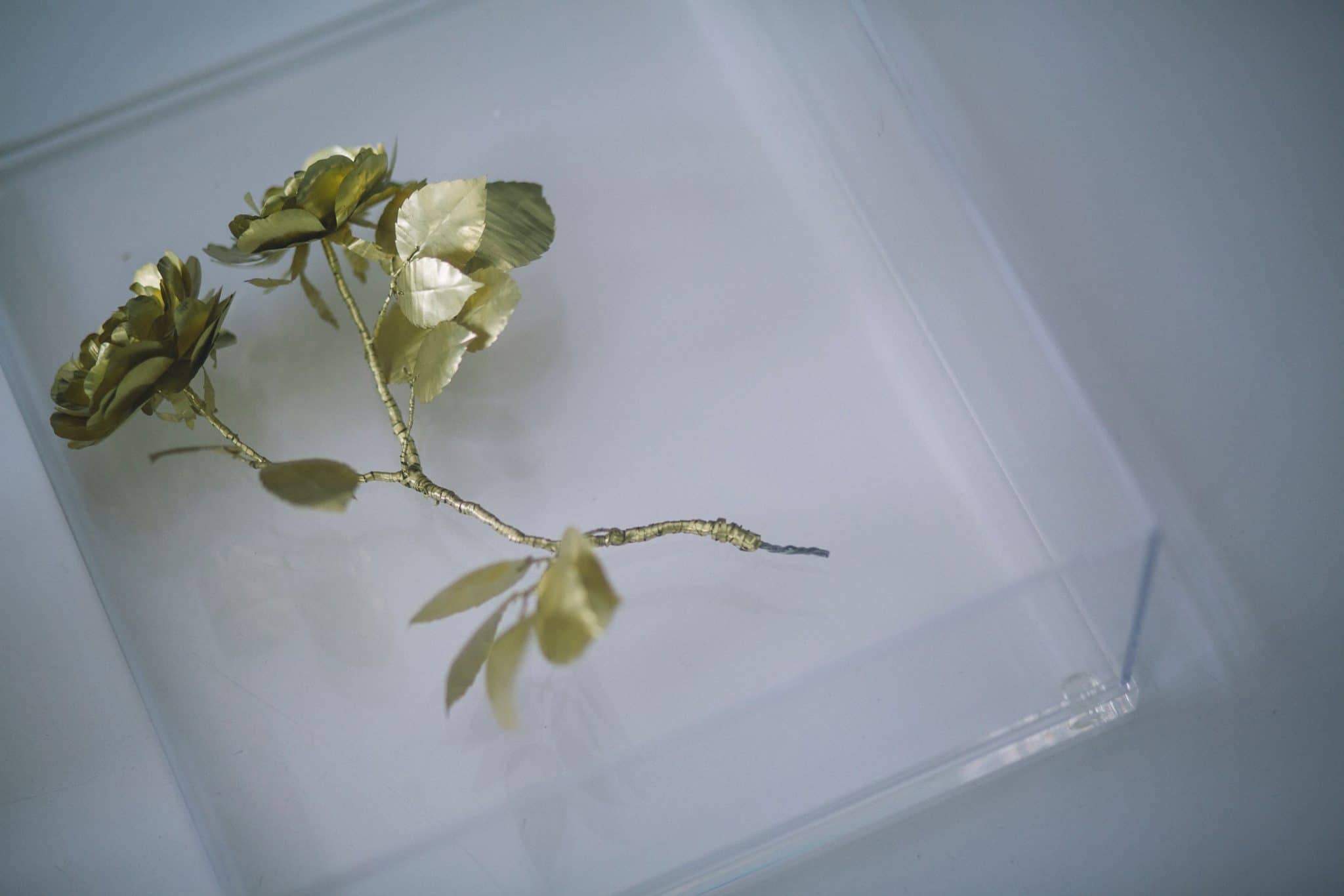
What’s an immediate turnoff for you?
My partner jokes, “You’re two with nature.” The immediate answer is sweat. That’s a turnoff to me. Other than that, cruelty, unkindness. It’s not only a turnoff, it makes my soul go in a twist. Hatred, suffering. The worst sound is a child crying.
What’s something that makes you smile?
Chocolate, creativity, and the unexpected. The dark, the macabre, the twisted makes me smile. The black arsenic and lace gothic vampire thing. I love that aesthetic.
I’m comfortable in darkness.
What’s your favorite place on earth?
My favorite place on earth is my grandmother’s kitchen, really.
Knokke on the coast of Belgium. There is a long paved promenade called the Deeg which goes all the way to Holland. Then, order a waffle with some whipped cream.
Hummus in Akko. The best hummus on earth.
The top of Heavenly Mountain in winter on a snowboard overlooking Lake Tahoe. Majesty personified.
Lastly, Brooklyn Bridge at night. Driving into New York, seeing the skyline. I went to the Grand Canyon and I’m like “Eh, it’s a hole.” But the Brooklyn Bridge? New York skyline? Thank you, God.
Is there a funny joke you can tell?
My favorite joke is about the woman who leaves the Catskills show and dining room and says, “The food tonight, the food was poison! Poison! And such small portions!”
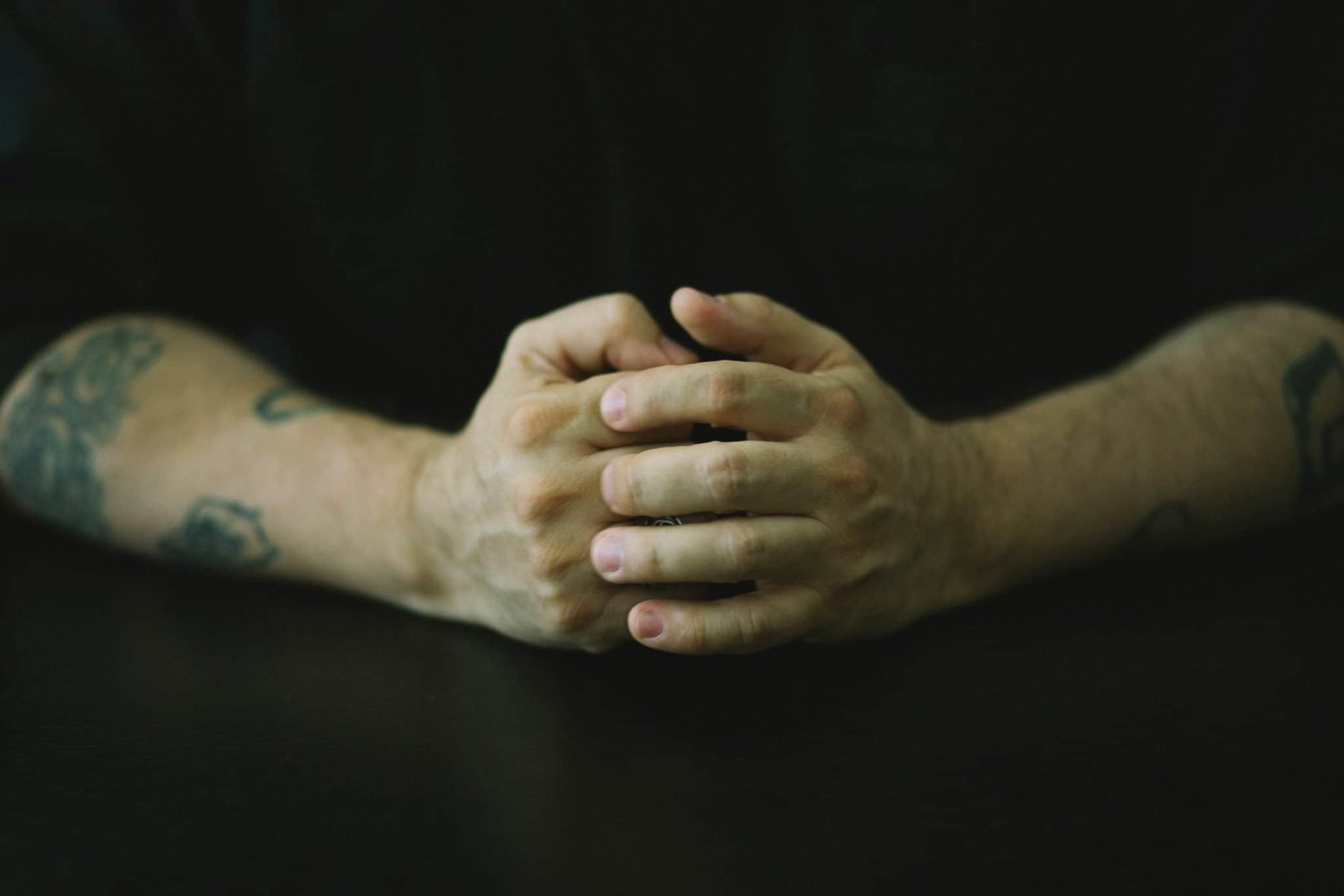
Is there anything else you want to share?
I’m a rabbi, but I have tattoos. I’m Belgian, but I’m also American, and I speak fluent Hebrew without an accent. I really like fashion, but I also teach Talmud. I can be deep and meaningful, but I really love the Real Housewives franchise.
There’s this constant polarity. One of the things that makes me full of joy is to stop looking at the world from a binary point of view. To stop looking at the world from an either/or perspective. To stop thinking that there is a distance between what we call the role versus your soul.
If you want to have a healthy spiritual personal life you have to live in the hyphen.
You don’t have to be one thing. You’re allowed to like different things. Revel in it. Allow yourself to be complex and multi-nuanced, and non-binary, both/and.
You can feel excited and afraid at the same time. You can feel love and hate at the same time. You can feel grief and relief at the same time, and that’s okay. That’s how I’m trying to live and teach and show and experience.
Photos by Lauren Pisano
Thank you for visiting Arq!
Arq is no longer publishing new content. We hope you'll enjoy our archived posts.